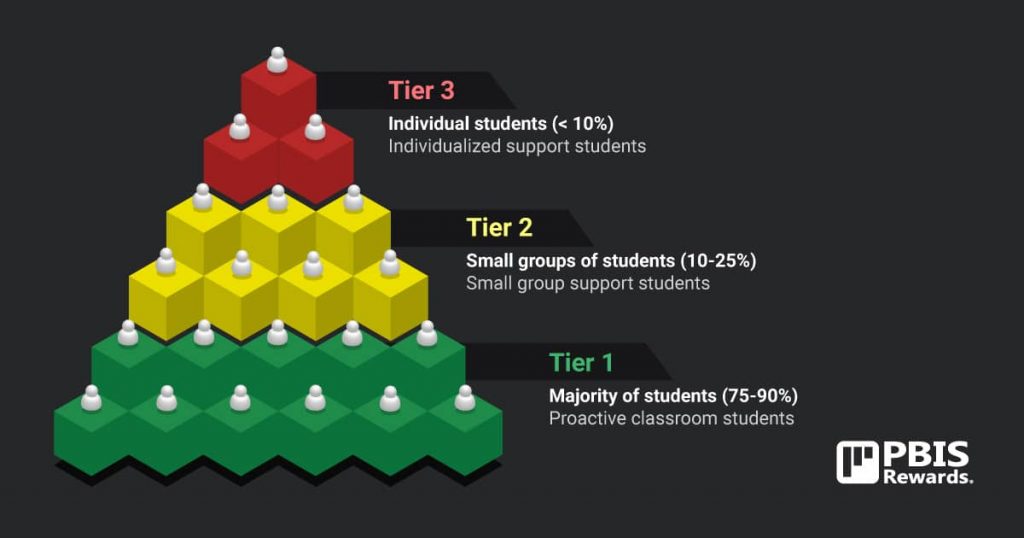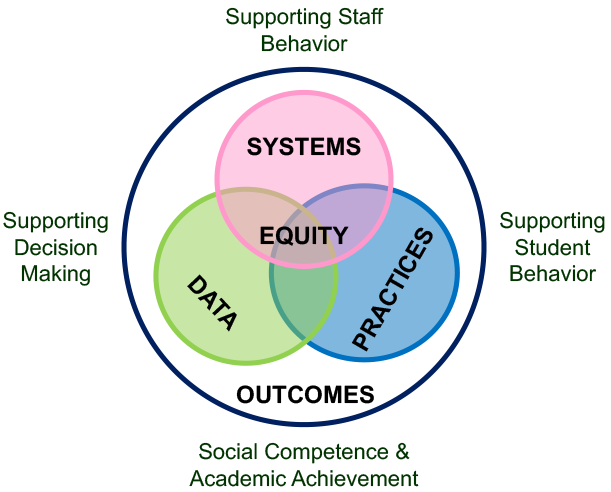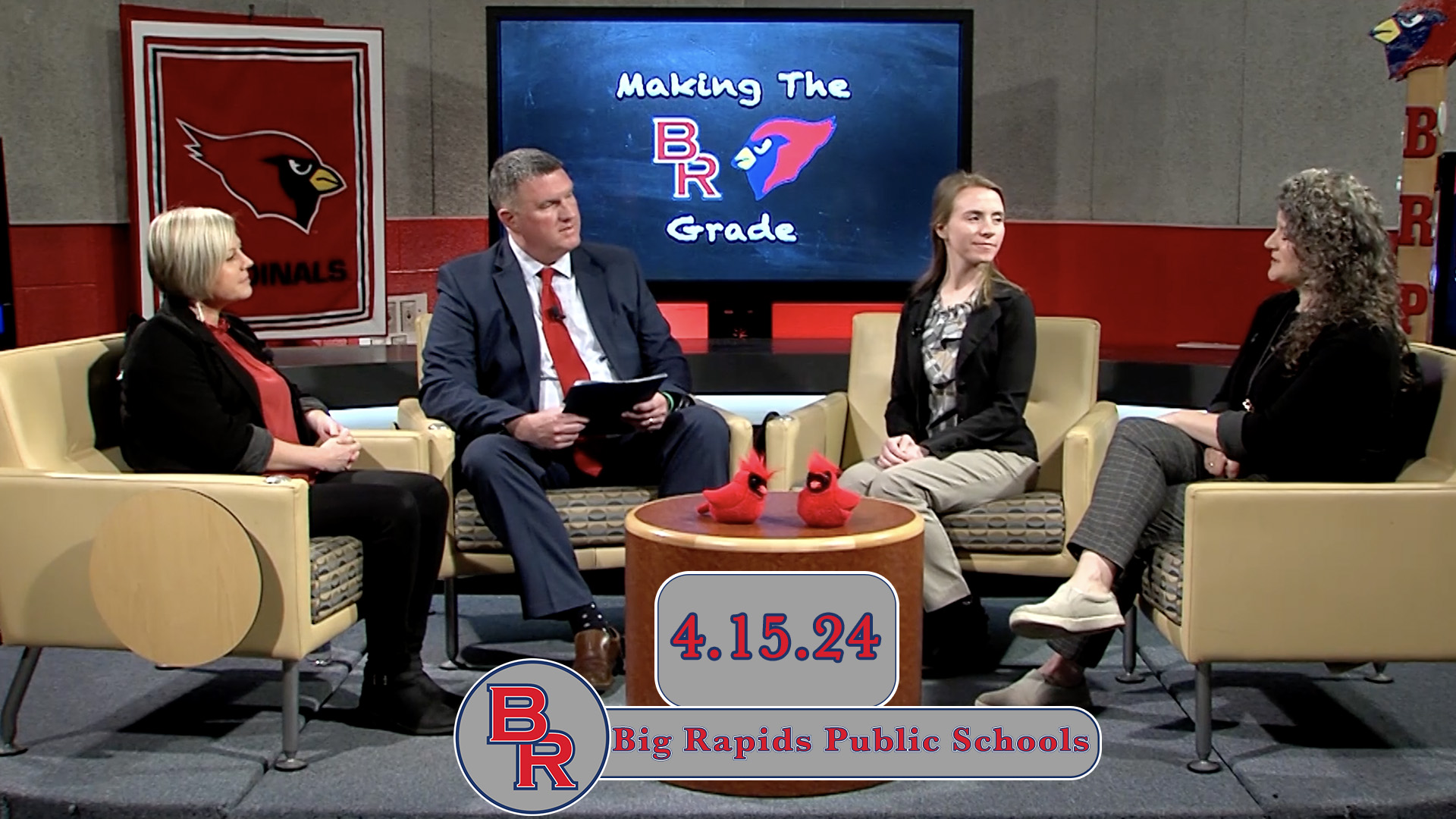This week’s studio show “Making the Grade” is hosted by Big Rapids Public schools superintendent, Tim Haist. Haist is joined by Kelly Hall-Smith, a first-grade teacher at Brookside elementary, Jaime Knape an MTSS Implementation Specialist, and Elizabeth Robinson an MTSS coordinator. In this episode, they will be covering the implementation of MTSS in Big Rapids Public schools.
MTSS
MTSS stands for Multi-Tiered Systems of Support. Robinson defines it as a delivery system that puts systems into place to support students at every level, they are at based off the data from students. Robinson goes on to explain the process BRPS is going through. She goes on to explain they are in the “exploration phase.” They are putting systems in place to help students grow in the classroom.
Haist explains MTSS has many teams that are collaborating together to make things function properly. Robinson goes into detail about each team and what their role is. There is the district implementation team filled with lots of administrative staff, and this team makes many decisions and systems for the building teams’ benefit. The building team then puts these systems into place for students and staff. The building team and admin team communicate back and forth with one another to see what’s working and what is not and see what things they should change. There is also a social and behavioral committee which assists in building a framework for behavior and how it’s addressed.
Kelli Hall-Smith is a member of the building team and goes on to share what her experience is like being on the building team. She explains it is a space where they can share a lot of their input and opinions on decisions. They analyzed the systems in place and investigated different discipline forms and what things they wish to have changed. As well as discussing behaviors and how to decipher minor vs major behaviors.
Jamie Knape, the MTSS specialist explains that the direction BRPS is taking with MTSS is a very beneficial one. She explains that the teams work collaboratively and exceptionally well. Especially the way they communicate from one team to another. Much of the work being done now is not being implemented now. BRPS is waiting to implement these systems until they are completely polished for the 24-25 school year. This way they have a very strong foundation for the next school year.
Robinson continues on to explain that BRPS has a focus in behavior when it comes to MTSS. She explains that addressing behavior first is an effective way to move forward to addressing academics. Improper behavior will come with improper learning leading to improper academics. The system is refining the processes the school has already been doing and making changes to benefit students and staff.

PBIS
In the next ten-minute section of this week’s episode of Making the Grade, Tim Haist talks about the importance of behavior and how it’s gone down since COVID. Jaime Knape goes in depth about PBIS, which stands for Positive Behavior Interventions and Supports. Big Rapids Public Schools are planning to start to incorporate the first Tier (which just means the entire school and not specific grade levels) of this program to clearly state what their expectations are and make changes when necessary. There will be incentives and praise within the PBIS program to encourage the growth of positive behavior.
Tim goes on to ask how this program is going to be different from the ones used in the past. Jaime goes on to explain that in the past, teachers have just picked a few select ways to help their students. However, there was no foundation for these ways to help encourage positive behavior. PBIS has a foundation, and this will help teachers stay consistent in encouraging positive behaviors.
Because of MTSS and PBIS, a lot of the students at the Big Rapids Public Schools have developed leadership qualities. These students have been helpful in coming up with ideas of how to teach these systems to future students.

Data
On the last part of this episode, they start to break down the data used for behavior analytics, using behavior forms in college classes. The positive effects of the system show that students being held accountable for their actions has had a boost on performances and how students work in the classroom. They mention some backlash from teachers as it’s going to be a change of pace for the classrooms but overall, the move with behavior analytics has been a positive on. The final topic they talked about is overworking teachers and reiterating points on how the change has been hard but been a beneficial change and most.
Thanks for reading, tune in next time
